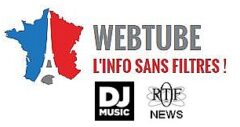RuTube.fr met en avant Open Culture :
Free culture movement
The free culture movement is a social movement that promotes the freedom to distribute and modify creative works in the form of free content or open content by using the Internet and other forms of media.
The movement objects to over-restrictive copyright laws. Many members of the movement argue that such laws hinder creativity. They call this system “permission culture.”
Creative Commons is an organization started by Lawrence Lessig which provides licenses that permit sharing and remixing under various conditions, and also offers an online search of various Creative Commons-licensed works.
The free culture movement, with its ethos of free exchange of ideas, is aligned with the free and open source software movement.
Today, the term stands for many other movements, including open access (OA), the remix culture, the hacker culture, the access to knowledge movement, the Open Source Learning, the copyleft movement and the public domain movement.
Background of the formation of the Free Culture movement
In 1998, the United States Congress passed the Sonny Bono Copyright Term Extension Act which President Clinton signed into law. The legislation extended copyright protections for twenty additional years, resulting in a total guaranteed copyright term of seventy years after a creator’s death. The bill was heavily lobbied by music and film corporations like Disney, and dubbed as the Mickey Mouse Protection Act. Lawrence Lessig claims copyright is an obstacle to cultural production, knowledge sharing and technological innovation, and that private interests – as opposed to public good – determine law. He travelled the country in 1998, giving as many as a hundred speeches a year at college campuses, and sparked the movement. It led to the foundation of the first chapter of the Students for Free Culture at Swarthmore College.
In 1999, Lessig challenged the Bono Act, taking the case to the US Supreme Court. Despite his firm belief in victory, citing the Constitution’s plain language about “limited” copyright terms, Lessig only gained two dissenting votes: from Justices Stephen Breyer and John Paul Stevens.
“Free Cultural Works” Definition
In 2005/2006 within the free culture movement, Creative Commons has been criticized by Erik Möller and Benjamin Mako Hill for lacking minimum standards for freedom. Following this, the Definition of Free Cultural Works were created as collaborative work of many, including Erik Möller, Lawrence Lessig, Benjamin Mako Hill and Richard Stallman. In February 2008, several Creative Commons licenses were “approved for free cultural works”, namely the CC BY and CC BY-SA (later also the CC0). Creative commons licenses with restrictions on commercial use or derivative works were not approved.
In October 2014 the Open Knowledge Foundation described their definition of “open”, for open content and open knowledge, as synonymous to the definition of “free” in the “Definition of Free Cultural Works”, noting that both are rooted in the Open Source Definition and Free Software Definition. Therefore, the same three creative commons licenses are recommended for open content and free content, CC BY, CC BY-SA, and CC0. The Open Knowledge foundation defined additionally three specialized licenses for data and databases, previously unavailable, the Open Data Commons Public Domain Dedication and Licence (PDDL), the Open Data Commons Attribution License (ODC-BY) and the Open Data Commons Open Database License (ODbL).
